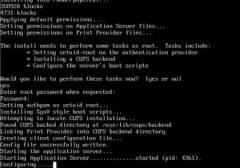 Dereferencing NULL pointer is a very common programming error in almost any programming language that supports pointers. It cannot be caught at build time in general, so we can carefully check every pointer before dereference and handle errant cases in runtime (warning in log?).
Dereferencing NULL pointer is a very common programming error in almost any programming language that supports pointers. It cannot be caught at build time in general, so we can carefully check every pointer before dereference and handle errant cases in runtime (warning in log?).
But above method is a runtime method. If you don't have proper code coverage by tests it might not detect errant cases. I believe the answer for this issue lies in static methods (performed at build/before runtime phase). Good example of such approach is LCLint:
char firstChar2 (/*@null@*/ char *s)
{
if (isNull (s)) return '\0';
return *s;
}
As you can see LCLint uses annotations to mark parameter that might have NULL value and thus can detect dereferencing NULL. But LCList is only designed for C language and cannot check C++ (C++ is more complicated for parsing).
QT framework introduces smart pointer with reference counter-based garbage collection: QSharedPointer. This smart pointer allows for NULL value, can we make extension that will not accept NULL? Let's see:
template class QNullableSharedPointer : public QSharedPointer {
public:
QNullableSharedPointer();
QNullableSharedPointer(QSharedPointer sp) { QSharedPointer::QSharedPointer(sp); }
QNullableSharedPointer(T* ptr);
QNotNullSharedPointer castToNotNull() {
return QNotNullSharedPointer(*this);
}
};
template class QNotNullSharedPointer : public QNullableSharedPointer {
public:
QNotNullSharedPointer(T* ptr);
protected:
QNotNullSharedPointer();
QNotNullSharedPointer(QNullableSharedPointer sp) { QNullableSharedPointer::QNullableSharedPointer(sp); }
// T* operator-> () const;
friend class QNullableSharedPointer;
};
As you can see I hide some methods in QSharedPointer subclass called QNullableSharedPointer. If you declare: "QNullableSharedPointer x" you cannot dereference "x->property" because x might hold a NULL value. In order to make dereference you have to cast to QNotNullSharedPointer: "x.castNotNull()".
Of course you can ask: "Hey, one can cast from nullable to null without any test for isNull()". That's correct. But casting can be easily scaned in source code and you can review those places carefully (or by some automated tool). It's only check that is left to human, rest will be handled by compiler (proper variant of pointer used).
As you probably noticed QNotNullSharedPointer might be called QSharedReferece instead to resemble fact that referecens in C++ should be always initialised. Yes, it's kind of "reference".
I haven't located any implementation of that pattern instead of this post ("Why no non-null smart pointers?" in context of Boost library). Do you know similar build-time techniques that can lower probability of programming error in C++ (thus increase of quality)?